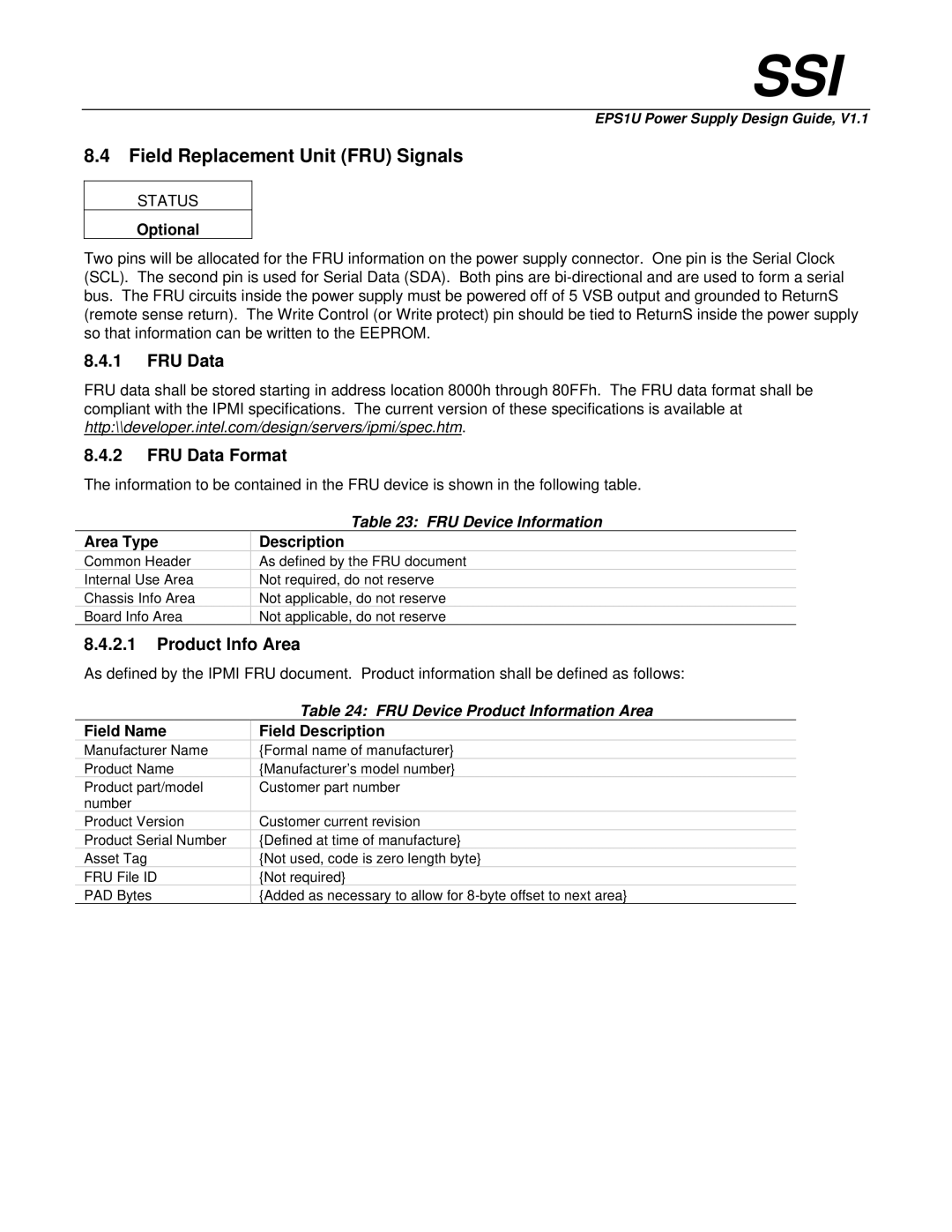EPS1U specifications
The Intel EPS1U is a powerful and compact single-board computer designed to cater to the growing demands of edge computing, IoT applications, and industrial automation. This system boasts a range of features tailored for versatility, performance, and reliability in various environments.At the heart of the EPS1U is Intel's cutting-edge architecture, which utilizes low-power processors that deliver robust performance without compromising energy efficiency. This makes the EPS1U suitable for operations in constrained environments where thermal and power management is critical. The board supports various Intel processors, allowing users to select the right balance between performance and power consumption for their specific applications.
One of the standout characteristics of the EPS1U is its extensive I/O capabilities. With multiple USB ports, GPIO pins, and support for various communication protocols such as Ethernet, RS-232, and CAN bus, the EPS1U can connect seamlessly to a wide array of peripherals and networked devices. This connectivity makes it an ideal choice for implementing IoT solutions, enabling real-time data collection and analysis.
The EPS1U is equipped with advanced technologies such as Intel's RealSense for depth sensing and vision processing, providing unparalleled capabilities for robotic applications and computer vision tasks. Additionally, the board supports Intel's OpenVINO toolkit, which optimizes deep learning and computer vision workloads for enhanced performance on edge devices, making it easier for developers to deploy AI-powered applications.
Another notable feature of the EPS1U is its rugged design, ensuring reliability in challenging conditions. The board is built to withstand vibrations, extreme temperatures, and shock, which is essential for industrial deployments or outdoor applications. This durability ensures consistent performance in environments where standard consumer-grade components might fail.
Furthermore, the EPS1U provides extensive support for software development, offering compatibility with various operating systems, including Linux and Windows, along with comprehensive SDKs. This allows developers to quickly create applications tailored to their specific needs, accelerating the time to market for innovative solutions.
Overall, the Intel EPS1U represents a significant step forward in the evolution of edge computing platforms, with its combination of performance, connectivity, and durability. Whether for smart factories, automated systems, or advanced IoT applications, the EPS1U stands out as a versatile and powerful solution for modern digital transformation initiatives.

